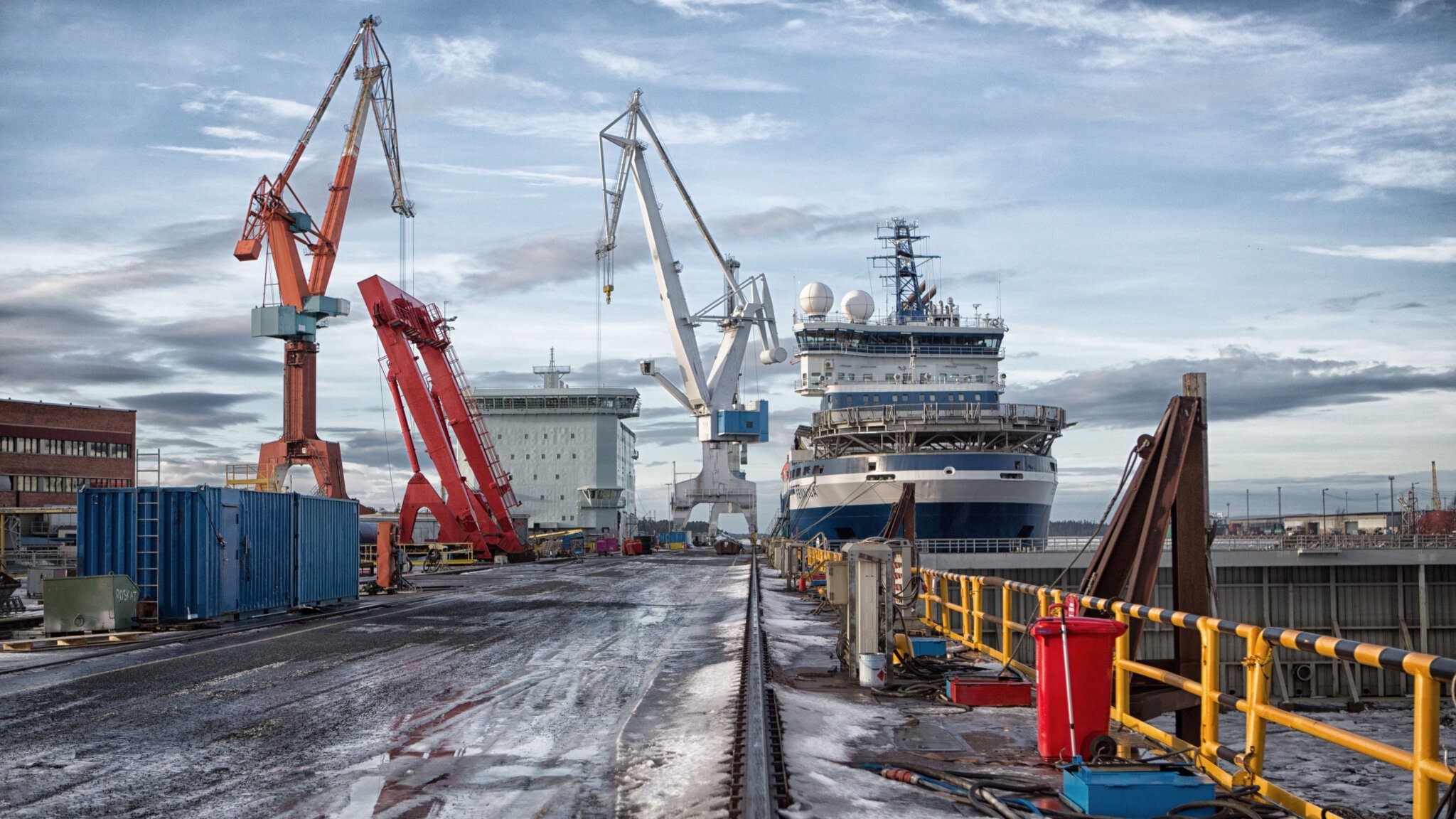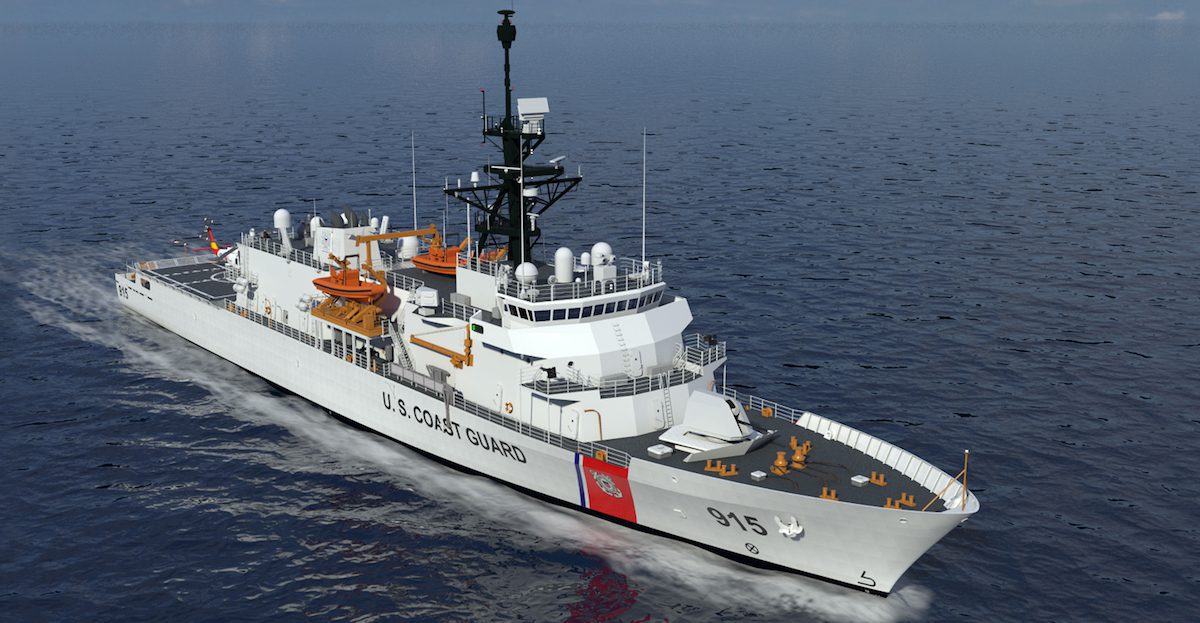By Tony Capaccio (Bloomberg) —
The shipyard producing the US Navy’s new frigate has been hobbled by a failure to “achieve engineering and skilled workforce levels” for the medium-sized vessel, according to a service document on the project that’s now forecast to run as much as three years late.
Fincantieri Marinette Marine has experienced “unprecedented poor workforce retention — high attrition rates,” according to an unreleased Navy briefing slide prepared for senior service and Pentagon officials late last month. It spelled out the shipyard’s woes in more detail than the publicly released findings of top Navy programs released last week.
Navy Names New Frigates the “Constellation Class”
The company will require more than 1,600 skilled workers next year, up from more than 900 today, according to the slide.
The Wisconsin-based unit of Italy’s Fincantieri SpA was picked by the US Navy in 2020 over three other contenders for the initial phase of its new frigate program. The frigate was conceived as a better-armed, better-armored but more expensive successor to the problem-plagued Littoral Combat Ship. The contractor was obligated to deliver the first of a potential 10 frigates by April 2026, but that’s now anticipated to slip by as much as 36 months.
The previously unreported briefing slide made available to Bloomberg News outlines a harsher conclusion than Navy officials gave reporters last week when they outlined the findings. Fincantieri Marinette Marine’s workforce retention issues are symptomatic of the challenges facing the Navy’s shipyards.
It’s driven the service to invest billions of dollars in industrial base infrastructure improvements and to more actively seek out needed skilled employees such as welders, pipefitters, metal fabricators and electricians.
“Inexperienced labor and supervisors are a consistent challenge across Navy programs and a product of the steep buildup of workforce that is necessary to achieve performance across all the shipyards,” said Shelby Oakley, a Government Accountability Office director who oversees defense contracting assessments.
Offering Bonuses
Navy Secretary Carlos Del Toro acknowledged the frigate builder’s retention issue in a brief interview after congressional testimony on Wednesday. He said the service has provided incentive fees for workers to stay on the job — $5,000 if they stay a first year and $5,000 “if they stay throughout construction of the first ship,” he said. “We’ve been trying to work with industry to get them to a better place,” he said.
The Navy expects the first frigate to cost almost $1.3 billion, with an average procurement cost of approximately $1.1 billion for the remaining 19 ships, lawmakers said in the fiscal 2023 defense policy report.
Of all the shipbuilding program delays disclosed, the frigate “was the most startling for me,” said Ronald O’Rourke, naval analyst for the Congressional Research Service.
Vice Admiral James Downey, head of Naval Sea Systems Command, told reporters last week that in addition to workforce hiring and retention issues, the frigate delay stemmed in part from the ship’s incomplete design and to Fincantieri working on three programs simultaneously at its Wisconsin yard, including a vessel for Saudi Arabia.
Fincantieri spokesman Eric Dent said in a statement that “we understand” the 36-month delay is a worst-case scenario.
“We know we are on the clock, so challenge accepted,” he said. “We need to improve on a range of workforce issues for sure, and we need a Navy-approved design. We will get there, but we cannot do it alone.”
Workforce issues “are a consequence of the Navy consistently not taking a critical eye to the overly optimistic promises underpinning its shipbuilding programs,” Oakley said.
© 2024 Bloomberg L.P.

 Join The Club
Join The Club










